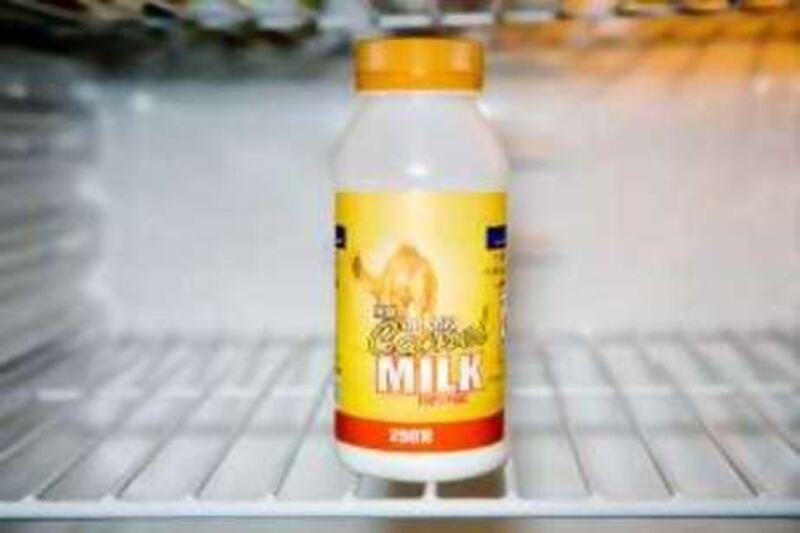The UAE could get approval to begin exporting camel's milk to Europe as soon as next year. The European Union (EU) has notified the UAE that it has approved its plans to demonstrate the safety and quality of the milk. The EU will next year send a team of inspectors to verify the documentation of quality standards at camel farms, as well as their veterinary practices and the local regulatory regime. If their report is positive, the European Commission and the European Parliament must approve the UAE as a country that can sell camel's milk to Europe.
The announcement follows five years of work by the Dubai-based Central Veterinary Research Laboratory (CVRL) and government bodies to satisfy the EU. "The UAE is intending to export camel milk to European markets next year, to be among the first suppliers of this product to the European Union," said Abdullah al Janan, the head of agriculture at the Ministry of Environment and Water, according to Al Ittihad newspaper.
Only two companies sell camel's milk in supermarkets in the UAE: Al Ain Dairy farm and the Emirates Industry for Camel Milk and Products, which sells its camel's milk under the Camelicious brand name. Tests have shown the milk has less than half the fat and 40 per cent of the cholesterol of cow's milk, and three times the vitamin C. It can be digested by people who are intolerant to lactose, and can even ease food allergies. Despite these health benefits, it is unlikely to ever compete with cow's milk in the European market. "Our aim was never to push cow's milk out of the shelves in Europe. We will never have quantity," said David Wernery, a legal adviser to Camelicious who has worked closely with the Ministry of Environment and Water on the project. Emirates Industry produces 5,000 litres of camel's milk a day - less than a tenth of one per cent of Europe's daily thirst for cow's milk. "But for more health-conscious people who are lactose-intolerant, camel milk is a viable option." He added that camel's milk is more expensive than cow's milk. A one litre bottle of camel milk produced by Al Ain Dairy was yesterday priced at Dh9, compared to Dh5.50 for a one litre bottle of the company's cow's milk. A one litre bottle of Camelicious was Dh10. Dr Ulrich Wernery, the scientific director of the CVRL, said receipt of the EU letter was a milestone. "The first step is done and that was a more important step," said Dr Wernery, who is David's father. "Now we have got a green light to sit down and make a strategy." The CVRL has been helping Emirates Industry with its Camelicious products. "We will have to see how to explore the European market. We have to find people who want to buy it." The UN Food and Agriculture Organisation estimates the potential world market for camel's milk at US$10 billion (Dh36.7bn), with hundreds of millions of potential customers in Arab countries, Africa, Europe and North and South America. While Dr Wernery said he was unsure how much demand there would be from Europe, he was confident that once the UAE wins export rights to the EU, the US and Canada will not be far behind. "There is a big market to US and Canada to export, not only to Europe, but the US will agree after Europe most probably," he said. "A hundred thousand Somalis are immigrated to Canada and they all want to drink camel milk because they are used to it - so the market exists." For now, the EU does not allow the importation of camel milk because of concerns about foot-and-mouth disease. But studies by the CVRL have proven that one-humped camels, the variety native to the UAE, are resistant to the disease. "All these scientific papers have been sent to the responsible person in Brussels and they found out there is no need anymore to prevent the import of milk to Europe," Dr Wernery said. Another sticking point has been proving that the exported camel's milk has been pasteurised. Working with laboratories in the UAE and Europe, the CVRL has developed an enzyme test that confirms pasteurisation. However, Mr Wernery said, the test still needs to be verified by the European Commission. mdetrie@thenational.ae






